The venue
The new Pragati Maidan — with its red sandstone plazas and giant stone-and-glass constructions set amid fountains and open amphitheatres — played host to Indian fashion’s most defining seasonal event from October 11 to 15. It was the fashion industry’s return to a beloved venue, one that was (even prior to the makeover) designed to handle large crowds and intense traffic. In short, it works, like it always did. But something felt amiss, or maybe I was just feeling nostalgic for the times where the designers’ stalls sat prominently at the centre of the ground level, and we could watch the bustling business of fashion taking place while we attended the shows upstairs.
This time, the stalls were tucked away behind sponsors’ kiosks, and were smaller in size and number, with just above 80 designers opting to hire one for the five-day period. Why are designers choosing to forego fashion week? Is it the absolute control that social media gives them over their storytelling?
The youngsters
While it is great to be floored by beautiful designs from the biggest and boldest names, I reserve a special kind of attention for the newer names and labels that often have the most intriguing things to say.
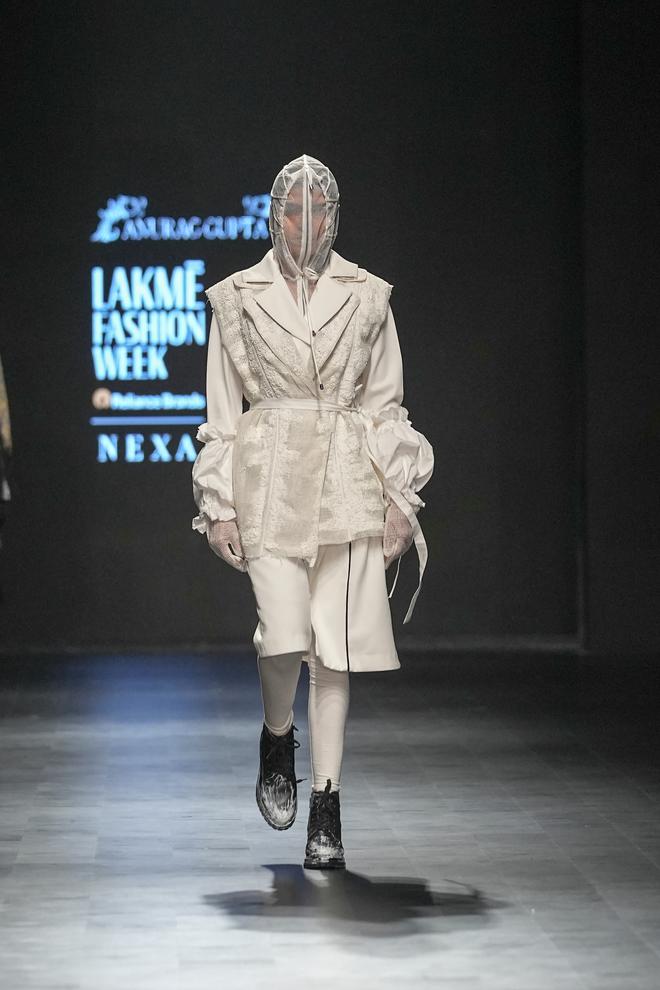
One such is Anurag Gupta, whose lineup for the GenNext show was inspired by the uncomfortable reality of India’s numberless persons working in manual scavenging (the designer’s press pack had a copy of an RTI he had filed asking for official figures which Government agencies were unable to provide). The designs and silhouettes were not what we would consider easily wearable, but works of art and thought that relied on unravelled knitwear textures and cocoon silhouettes to make a point.
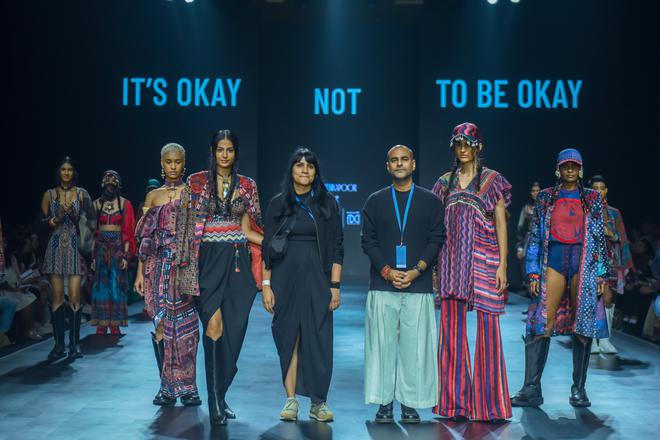
Another young designer, Aseem Kapoor, also debuted his label on the fashion week ramp with a collection that brought a maximal approach to artistic prints and saturated colours derived from the nomadic tribes of the Thar desert, layered and draped in asymmetrical silhouettes suited for multiple body types and sizes; a very wise approach to design.
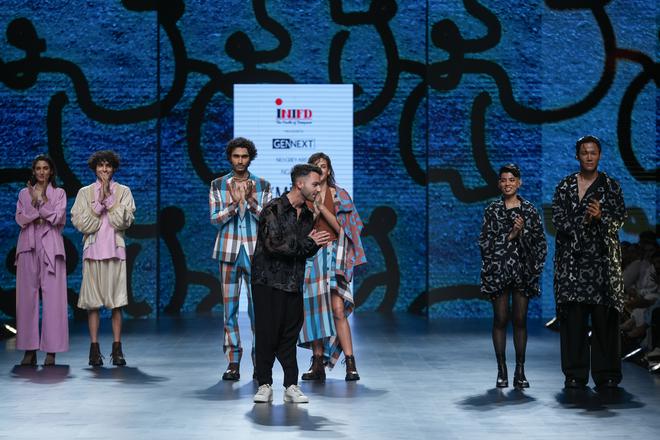
No Grey Area by Arnav Malhotra played with oversized Madras checks and graphic prints in a fresh twist on contemporary streetwear, offering separates that can easily become part of a wardrobe across seasons and trends.
Jaipur-based label Triune’s graphic prints, artistic patterns, and oversized silhouettes also drew applause. I must also especially mention his use of beautiful organic cotton printed and treated like vintage denim.
The return
Two designers who had, for the past few years, plateaued in their design offerings and the interest they piqued, seemed to have made a successful comeback this season: Ashish Soni and Varun Bahl.
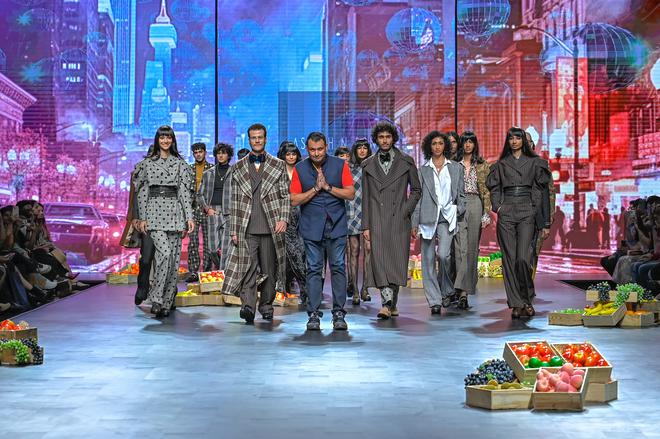
For Ashish, it was his attention to detail, impeccable tailoring, his banana-motif embroidery patches, and quirky colours that carried the day. And this collection spanned the decades of the 1970s, ‘80s, and ‘90s in one fell swoop, offering smart separates that can be styled in a number of ways.
For Varun, his pret collection saw a reclamation of his easy, fluid design language, his patchwork embroidery, and his enduring love for florals as witnessed in his exuberant prints. Made in sustainable textiles, this was a refreshing take from a designer whose signature has evolved over time to define a bohemian aesthetic.
The standouts
Abraham & Thakore chuckled at an inside joke and sent out a clever lineup inspired by non-verbal communication. It included everything from jumbled alphabets in multiple real and unreal languages achieved in beautiful ikat, textural designs inspired by the Braille script, and exquisite laser cutwork-pallu saris (making them the first in a country to figure out what a designer sari actually stands for.)
With them stands 11.11/eleven eleven, a quiet and industrious design label committed to sustainability. Their show began with a beautiful video of khadi yarn being spun by hand, on a spindle, and the lineup that followed paid tribute to the sari and dhoti drapes, as well as modern separates for all body types in soothing shades of indigo, russet, undyed cream cotton, mustard, and gentle greys.
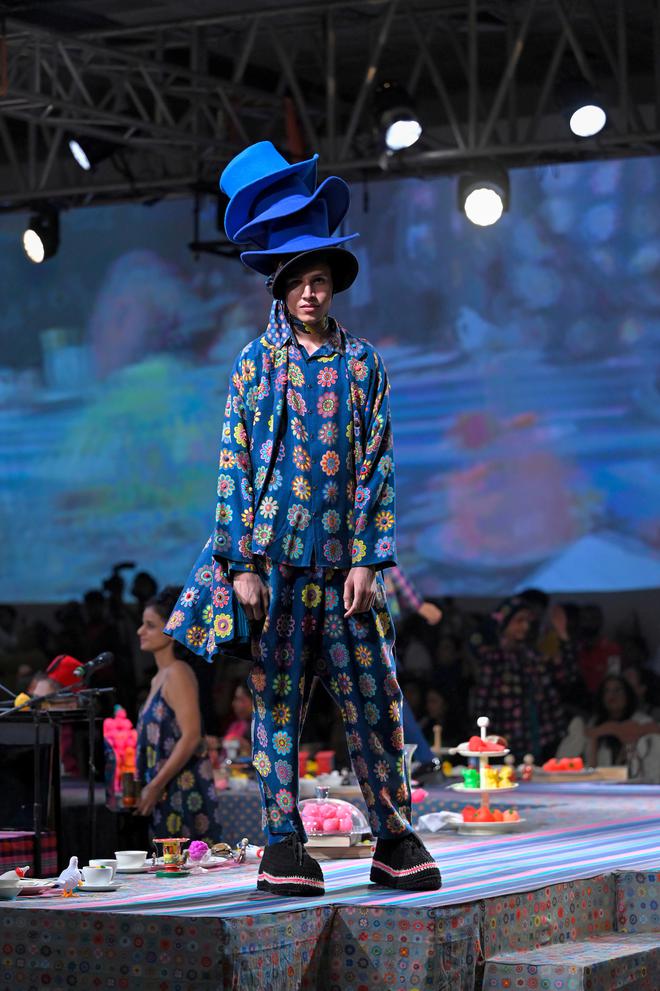
Pero held a legit tea party in lieu of a show, with models dancing and laughing, engaging the audience in a spectacle that underlined a subtle and powerful message: that clothes should never overtake life’s small joys. This was a smiling reminder of the things that make Aneeth Arora a great designer: no fuss, loads of fun, and a laser focus on her crafts and material, which has remained unparalleled for well over a decade.
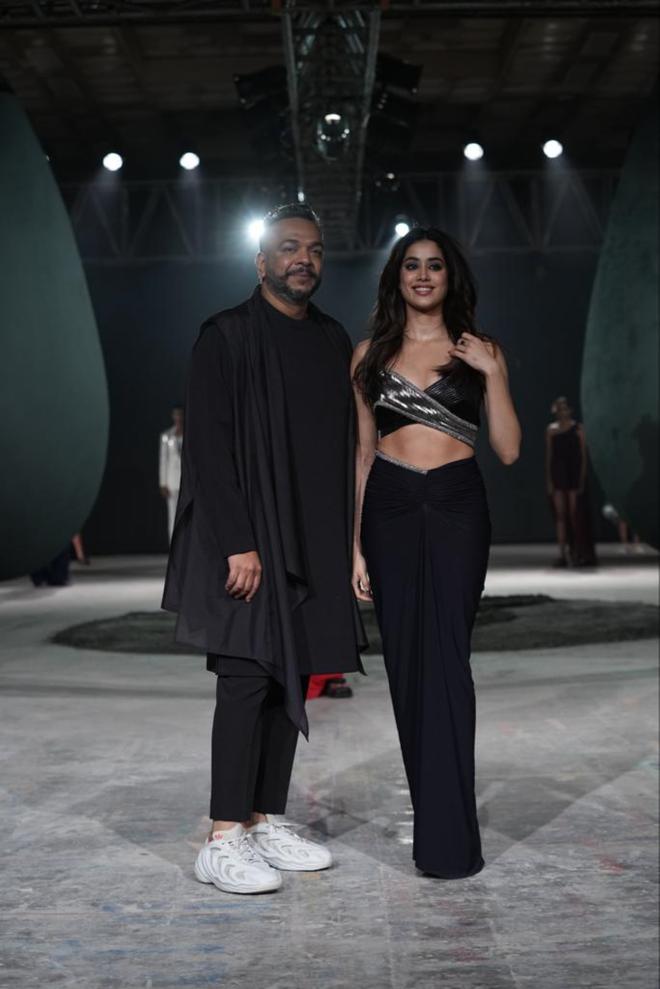
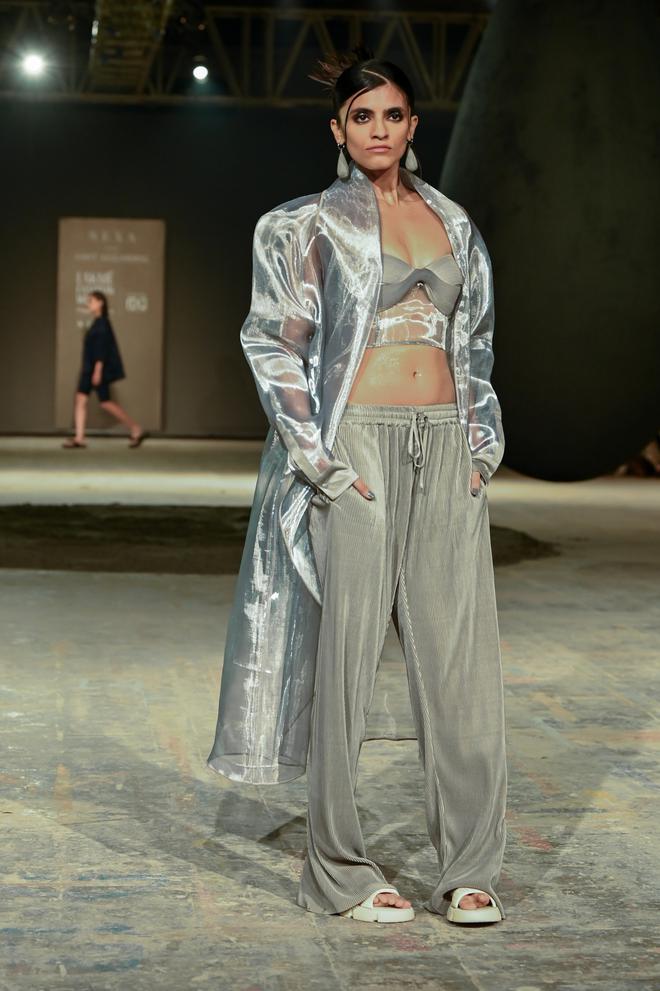
At Amit Aggarwal, we saw a new, more wearable and accessible approach to the designer’s uber-conceptual material explorations and engineered drapes; an easier way to wear his designs. This felt like a considered approach, now that his signature is well-recognised and has, over the years, become increasingly desirable. Simpler silhouettes carried his other-worldly embellishments with style, inviting fashion enthusiasts to dip their toes into his design vocabulary, which added to my appreciation of the collection and its many merits.
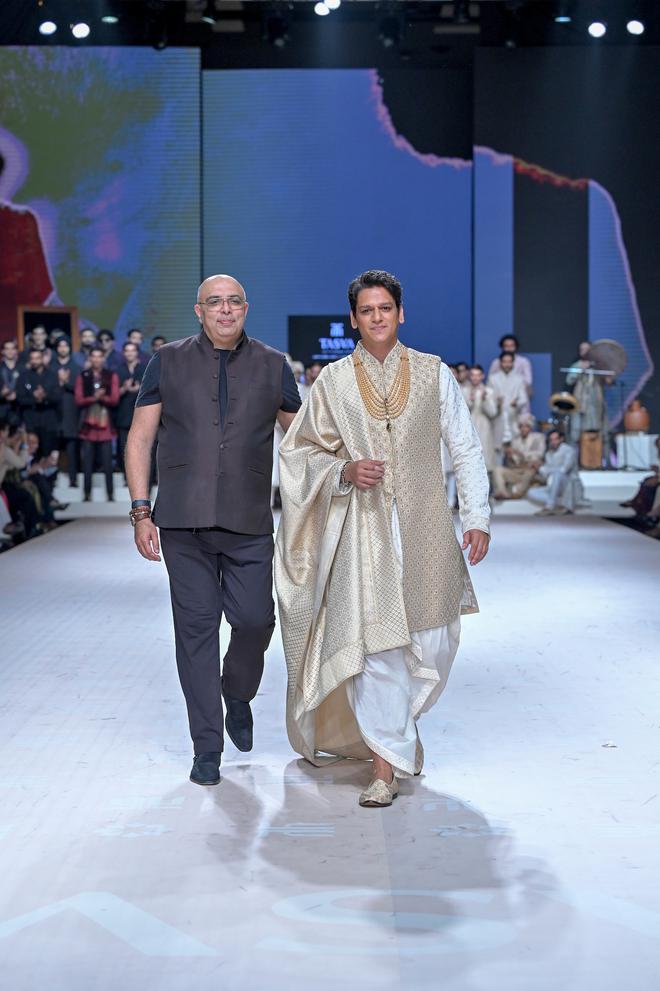
And I would be remiss if I did not mention Tasva by Tarun Tahiliani, the couturier’s more accessible Indian occasion-wear label created in partnership with the Aditya Birla Group. For this show, Tarun showed a lineup of easy and light Indian silhouettes embellished with fine machine and hand-embroidery, then highlighted with judicious embellishments. There were silken drapes from the looms of Benaras for both men and women, and options for both wedding and festive looks that will last for years.
Back to India
New York-based designer Bibhu Mohapatra presented the grand finale of fashion week with a collection that celebrated diversity and women.
From his origins in Odisha and his dedication to Indian silks and ikats, Bibhu has built a successful international brand centered on artful eveningwear that celebrates haute couture techniques and old-world glamour.
His first fashion show in India, the finale of fashion week was a reiteration of the label’s strengths and signatures. Billowing frocks and sensual gowns contrasted with uber-modern separates and a wide variety of modern material, all embellished with sequin work, bugle beads, leather inserts, laser cutwork, and metres and metres of diaphanous tulle, organza, and silks. The overall message was one of abundance and celebration, and fitted the occasion perfectly.
Normalising inclusivity
This piece would not be complete without a tip-of-the-hat to the models — of varying sizes, gender identities, and sexualities — who walked for several shows. And to the designers who included them in their shows without making a talking point of it.
This normalisation of differences ultimately adds not only to the diversity we see on the ramps, but also contributes to the larger idea of visibility and acceptance in an industry that has, in the past, been rightly accused of gatekeeping against those who did not fit exacting standards set by designers, directors, and stylists. We only stand to grow and benefit from this newfound acceptance of our diversity, and I was glad to witness it.







